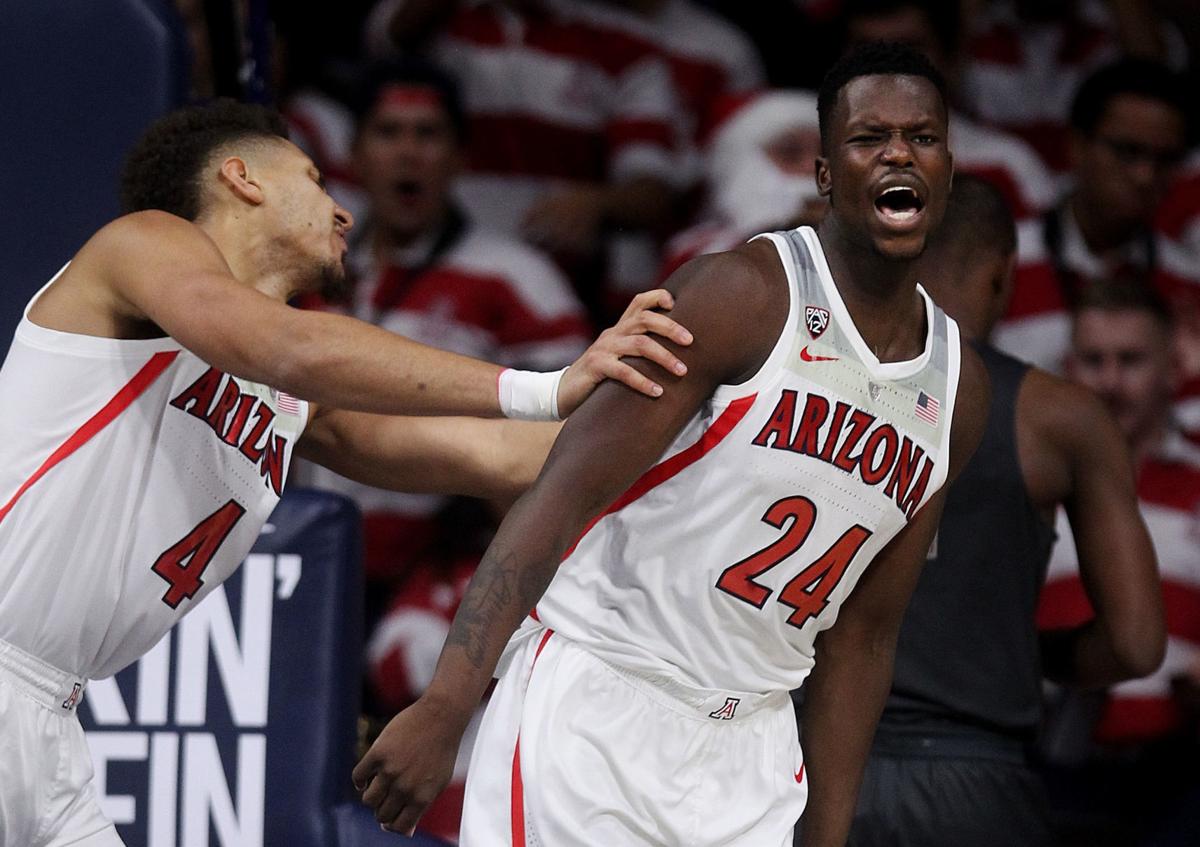The Pac-12 conference race will begin Thursday, after a nonconference season that provided almost no clue about who can actually win the thing.
Could it be Oregon, the preseason favorite that has been held back by injuries to standouts Bol Bol (foot), Kenny Wooten (jaw) and Louis King (knee)?
Can UCLA interim head coach Murry Bartow light a fire under what is arguably the most talented team in the league?
Will the experience levels and deep rotations of Washington or Colorado pay off over an 18-game haul? Can the Tinkle-Thompson families finally make a strong run at Oregon State? Might USC wake up somehow?
Or will Sean Miller, as he did at Xavier and during the 2010-11 season at Arizona, find a way to mesh the Wildcats into overachievers after they were picked to finish fourth?
Maybe the best guess is to look at who has the easiest path.
In that case, look closely at Washington.
The Huskies not only have by far the overall easiest strength of schedule, as calculated by averaging the collective Sagarin power ratings of each team’s opponents, but have a preferable calendar in which to play the league games.
Of the conference’s five top teams in the Sagarin ratings, Washington will have to play only one of them, Oregon, twice.
They’ll also get to start league play at home against Washington State on Saturday, won’t have to travel to Los Angeles, and won’t have to host two of the teams most likely to beat them in Seattle: Arizona and ASU.
Also, if the Huskies are in position to clinch the title on the last weekend of the season, they’ll get to do so at home, against Oregon and Oregon State.
Although strength of schedule calculations among a small group of teams can be distorted by the fact that the highest-rated teams don’t have to face themselves — which also partially explains why woeful Cal has by far the league’s toughest schedule — Arizona has the league’s third easiest schedule.
The Wildcats won’t have to play at Washington or WSU, and won’t have to worry about a home upset against USC and UCLA.
UA also gets to open at home against Colorado and Utah this weekend, then take what is probably the league’s easiest road trip next week, to the Bay area.
On the back end, UA will get a long week to rest and recover before its regular-season finale against ASU on March 9 ... at McKale Center.
SCOUTING REPORT: Arizona Wildcats vs. Colorado Buffaloes
It will be the fourth straight year the Wildcats get a major break from the Pac-12 schedule.
Arizona only had to face Oregon once each during 2015-16 and 2016-17 seasons, which could have spared the Wildcats another loss in each of those seasons. As it was, Oregon upset them at McKale Center during the 2015-16 season en route to Ducks’ the regular-season title and clobbered them 85-58 at Eugene in 2016-17 when the teams tied atop the league standings.
Last season, Arizona didn’t have to host Washington, which beat the Wildcats 78-75 in Seattle, and didn’t have to make what is an almost always treacherous trip to Los Angeles.
Still, when asked about the Pac-12 schedule skips this week, Miller was neutral.
“You just have to play the schedule that is provided,” Miller said. “Sometimes you have two away (games) that you wish you might be playing. Sometimes you have two at home that you wish you might be playing; sometimes you have two at home that you wish you were not playing.
“We have to play nine at home and nine on the road and be at our very best in all 18, so I don’t think we get caught up in who we’re playing and who we’re not playing.”
But the fact that Arizona and ASU didn’t have to go to Los Angeles last season was of concern to USC and to the Pac-12 as a whole, since it took away an opportunity for the Trojans to pick up a much-needed marquee win that could have lifted them into the NCAA tournament.
As it was, the Trojans finished 12-6 in the Pac-12 and 24-12 overall, but did not get an at-large bid.
The Trojans’ fate was so glaring that Pac-12 coaches discussed at their conference meetings last May the possibility of altering or adding to future schedules in such a way that marquee matchups would be played twice every season, thus keeping television partners happy and potentially increasing the conference’s chances at NCAA Tournament bids.
“I think it hurt USC this year not having the Arizonas on their homecourt,” Utah coach Larry Krystkowiak said during a break in the meetings.
But there’s one problem with that idea: In order to ensure the best matchups are played twice, the Pac-12 would have to identify who its best teams are.
This season, that’s pretty much an impossible task.





